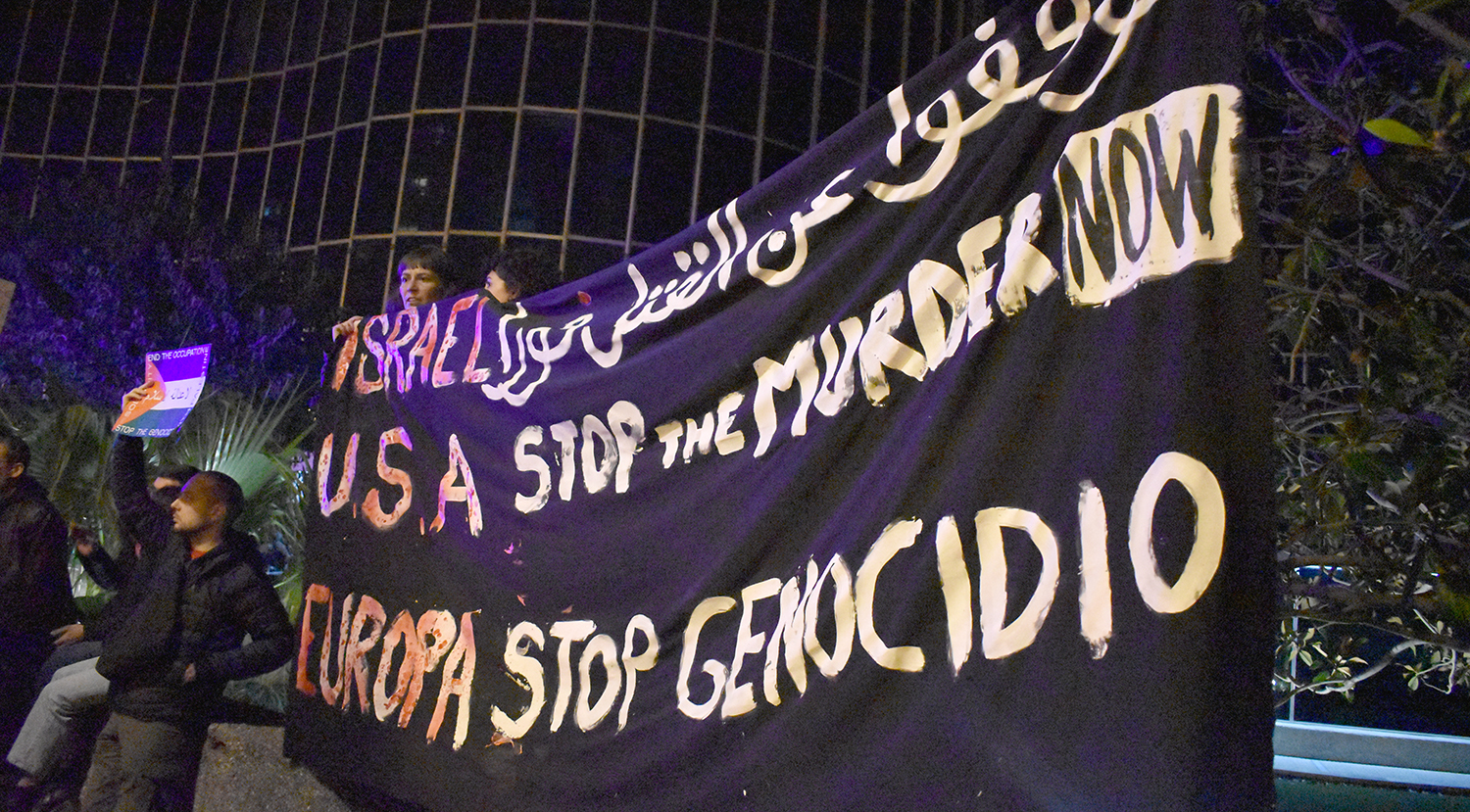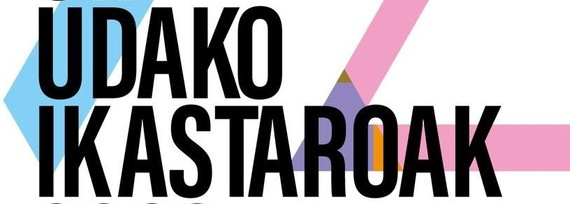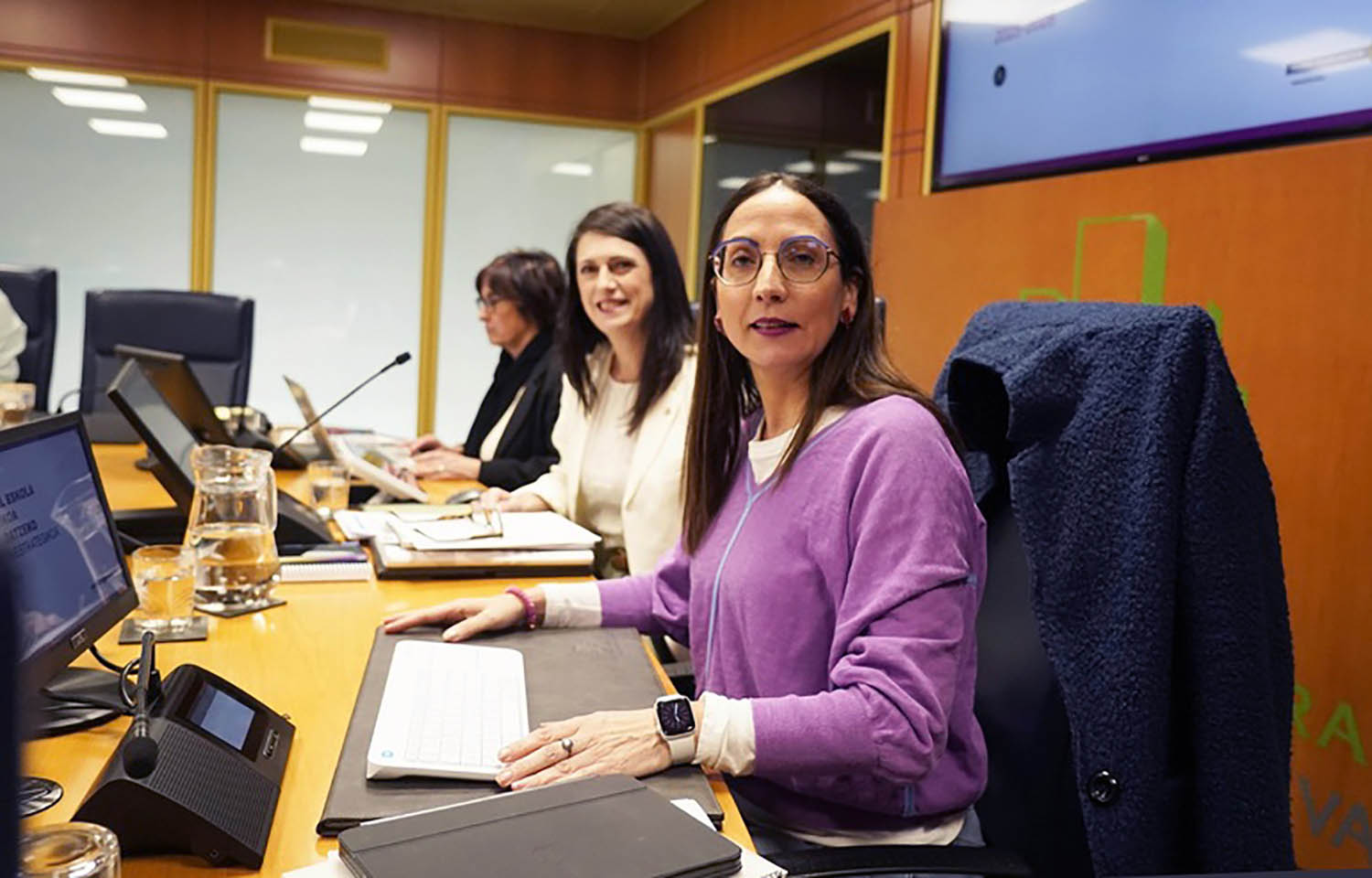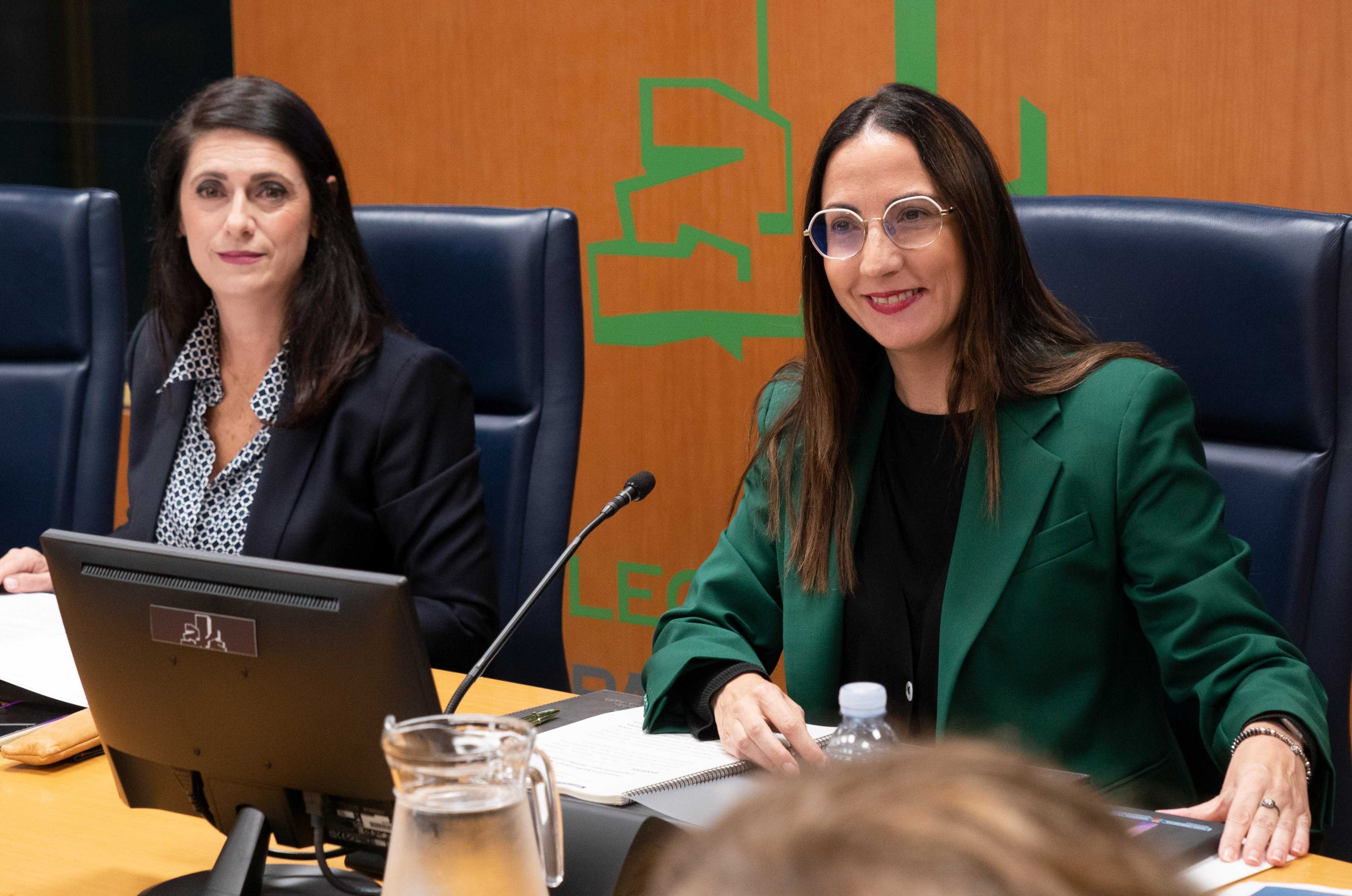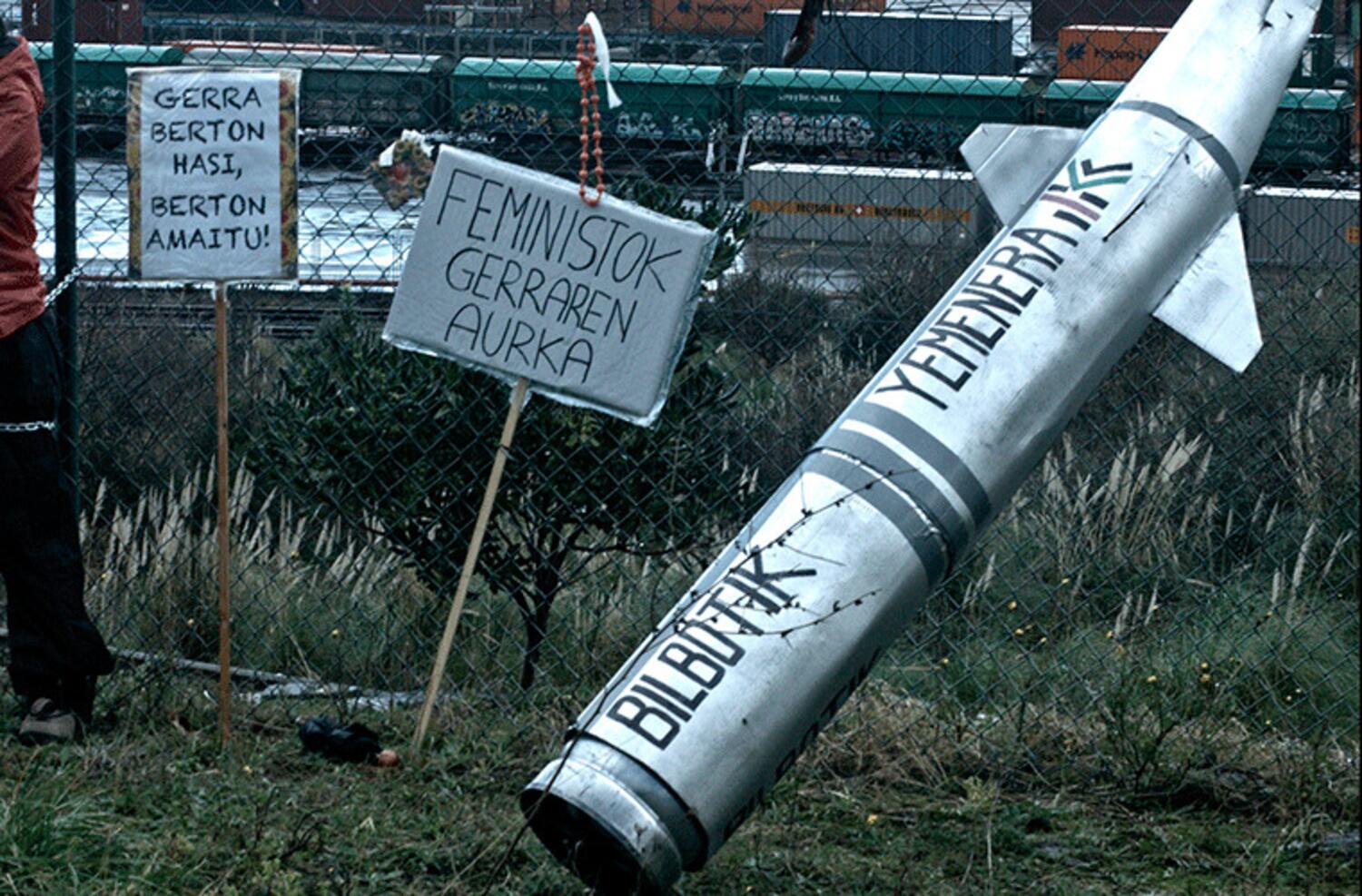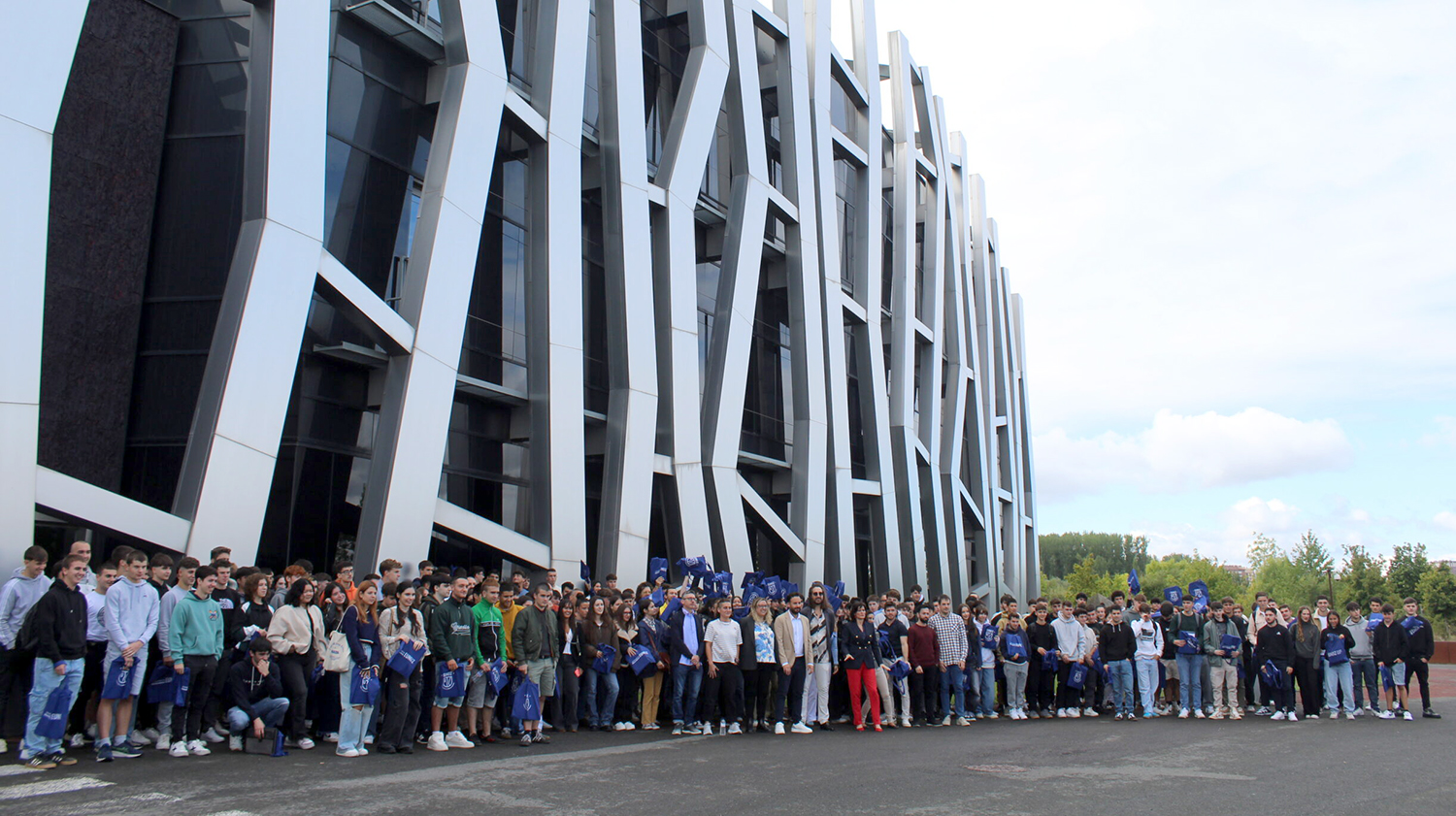"It's easy to say that you have to overcome competition between centers, but in reality it's not that simple."
- The decentralization of educational competences and the greater decision-making by the local agents, who put into practice an ancestral claim in many towns and in which Elhuyar advises. Nerea Zubia, head of Elhuyar's Participation and Transformation, tells us that they are currently engaged in about ten processes and that they have more and more requests: “The two main concerns that the municipalities bring us are segregation and language.”

To what extent is the educational system centralized, both with the state government and with the autonomous government?If we understand that centralization is measured according to the governance model, it is evident that the educational system is intimately linked
to the national and autonomic governments. But beyond that, there are also other practices on the spot. We believe that the distribution of decision-making power is a premise of decentralisation, and for that we must be prepared. We believe that city councils should play a greater role and that educational decisions should be taken at other levels and spaces, but that does not mean that higher institutions should reduce their responsibility.
Educational decentralization is a claim of years. What benefits does it bring? We see how, when municipalities take on
a leading role, new possibilities open up for dialogue with educational agents, for the transformation of ways of functioning and relationships. In short, working in a territory that connects us to the neighborhood, the town and that we have close by facilitates access to a common ground. Just as participation in other areas and community responses are expanding (energy transition, sustainability, cultural policies…), education is also the path. Social challenges are becoming more and more complex and their community response is essential, although in this increasingly individualistic society it is difficult for us.
"Experience has taught us that the activation of structures that bring together local educational agents and the community view of educational challenges extends the possibilities of moving things"
To do this, do the municipalities and institutions of our peoples have sufficient competence in education?The legal
framework is useful and necessary, but we do not have to wait. Until those competences come, you can cultivate the land and start working in the way we say, with more weight and responsibility to the municipalities. This requires involvement, courage and resources. Since they do not have competences, sometimes the municipalities do not think about it, “it comes from above and we can do nothing else, we are limited”, and it is true that the competition puts it somewhere else (for example, when channeling resources), but if there is a slip and a city council thinks it is important for the people, you can take steps, you can start a process to start experimenting. For us, the issue of competencies is not “this must be done by you and the other self”, but to create spaces of confluence and collaboration. Take the opportunity to talk about what is happening in the people, what networks of relationships we have, what paths can be worked together, how to organize ourselves in the future…
Apart from decentralisation, one of the demands has been the recognition of important functions to the local Educational Councils set out in the CAPV Education Act, although many agents have criticised the fact that the decision-making capacity granted to these Councils has finally been left inundada.Los municipal school councils already
exist and are mainly used to consult and inform, but have enormous potential. The Administration-Educational Centers are spaces of great interest to overcome the dynamics and capture the vision of citizenship and propose public policies, among which there are many agents: families, young people, agents of non-formal education and citizenship... In some processes guided by us, through the municipal ordinance, more functions have been attributed to it than those of this body.
Education is currently a contentious issue in many peoples.
What we have found is that in some villages conflict is erupted and in others there is tension, that little is needed to jump to the conflict… According to the reality, the environment is different, it is not the same a municipality with two centers or nine, but in general we have detected tension and conflict. Socio-economic segregation among students, the influence of the downward demographic trend in enrollment, the transmission of the Basque Country… We say easily that we have to overcome the competition and put in common in the center, but in reality it is not so easy, and it is not a jump from day to day, they are long processes. If we know the theory, we have to move from “me” to “us”, but many times we link to what we feel, we defend firmly and we have to release some things to reach agreements. Above the action of its center, we must believe that the process will benefit local education and the students of the people. After all, the needs of the different are interrelated and all work in the same space, in the neighborhood or in the village.
Experience has taught us that the activation of structures that bring together local educational agents and the community view of educational challenges extends the possibilities of moving things. Having said that, if enrollment in a center is in decline, if the profile of the student gives a lot of work, if the future of the faculty is in doubt…, these are the daily concerns of that person, and you also have to accommodate them. Local processes are fine, but they are not the solution of everything, other measures must be taken from the government.
"It is very important to show pain and feelings for the issues we are going to discuss, so that as the process progresses the conflict does not rise"
How do you act in these conflict environments?
From our intervention experiences we have identified a number of keys to be made at the beginning of the process to guide the situation in the best possible way. On the one hand, know how the agents are: How are local relations networks? Are there conditions for responding to the issue together? What do the actors in the process expect and what are they willing to give? Is there collaborative culture in the village (have you ever sat around the same table for something else)? When we go to a space like this, each comes with his experience and his backpack, to which we must accommodate. Sometimes we do a round with each of the actors, to talk about all this, sometimes we all talk together if there are conditions for it, in essence it is very important to bring up feelings and ailments about the issues we are going to discuss, so that as the process progresses the conflicts do not rise.
Secondly, to make a situation diagnosis on objective data, shared X-rays. Readings about the same data do not always match, but it is important at least to share and talk about them.
Thirdly, the will and willingness of those who have decision-making capacity, as well as leadership. For example, the City Council has to know that it is going to challenge, that it is going to be asked to take decisions, that it puts resources and that it has to respond.
Which areas and educational issues address your intervention?Based
on your concern to reach us, we focus on it. Sometimes the town hall calls us, sometimes it is the schools that go to town hall to get us the need for such a process. The two main concerns are segregation and language. As for language, in many places they are concerned about the transmission of Euskera. And when we talk about segregation, we not only talk about educational centers, but also in extracurricular activities there are large imbalances in the villages, linked to their origin and socioeconomic situation.
However, if other educational challenges (or other red alarms) that exist in that country emerge when diagnosing, we also address them.
In practice, what is your intervention?At the local level, these are
tailor-made interventions, but we have three main headlines, in all of them useful: community and participation are the main variables for the transformation of a people; education, far from trintxers and polarized attitudes, is essential to address it from the local perspective; social challenges must be met collectively, also in education. From there, and as mentioned above, we create the conditions for the process to move forward (listening to the agents, making room for mines…), we make diagnoses (for example, what are the registration data in one and the other? ), we interpret and discuss how we live those data, define what are the popular challenges from that common base and design and develop a roadmap to keep them. We are also trying to turn the coordination table that is created on that road into a decision-making centre.
"They have agreed and unified the reception of students and families: how to present families with the local educational network and the possibilities of schooling"
She says that one of the main concerns is segregation and that they make enrollment diagnoses. Can these processes affect enrollment, for example?
While it is true that in some areas the impact capacity is limited, we encourage the competent Department of Education to make proposals in the registration process and sometimes we have found this open channel. One of the best known examples is the town of Errenteria, the pilot of the local schooling commission, which was our first intervention in this type, in 2018 [this local schooling commission collaborates with the Basque Government and intervenes in the schooling called live tuition, that is, in the schooling of students coming from outside the CAV throughout the course]. Other countries are experiencing the same path, even if their impact is limited. They follow up from the local registration commission and forward proposals for registration criteria to the government.
The reception of students and families is carried out by each school center, which has also been agreed and unified: how to present families with the local educational network and the possibilities of schooling. And another line of work: to analyze the participation of vulnerable young people in the life of the people in general, beyond formal education and educational centers, and what are our possibilities to promote equity.
Language is another major concern.
Moving from reaching each one only within its center to doing so from a popular perspective and extending the reinforcement programs of the Basque country to all the people, with the involvement of the city council, there is a step forward. We will join forces and take advantage of synergies to make the response broader and to make much better use of resources.
What obstacles have you encountered along the way? What are the main resistances?
It is difficult for us to get out of what we feel and expand in the name of popular cohesion, as I said earlier. In addition, these processes are not linear and sometimes there may be a sense of setback, we can frustrate; in relation to this, it is important to put real and transparent expectations; we have to know that we reach the crossings (sometimes they will be obstacles, others will open new possibilities); sometimes the processes become heavy; any movement that can counteract the trust between the agents is usually very dangerous, so it is important to maintain space, maintain tension and time.
What is the result, where? In general,
it has been shown that, despite the Government ' s competence and the Government ' s obligations, the local level and proximity open up many opportunities. And you have to articulate the people, but you also have to articulate the administrations with each other to channel cooperation.
I mentioned earlier the functions added to school councils, the local schooling commission... However, there are achievements of very different levels. For example, it seems a banal thing, but in some villages they have great problems with the parades of Basque Day or carnivals, because they cannot cross, because everyone wants to end up in the town square but not together... and he himself lives as a great achievement.
The case of Errenteria is the first process we started with these elements, with a longer trajectory, and the centers continue to meet monthly, we are told that they were closer to each other, although at first they did not see it like this, but talking and making some decisions together, knowing ourselves better and empathizing with the situation of the other is what it implies.
And the reality of these centers has changed in Errenteria?The environment has changed, they do many more
joint activities, the municipal school council has another functionality and they will activate the school council of the young, they have together done a didactic unit to work equity, the piloting of the school commission is there… In the day to day some things would not change, but others do have impact.

We have had to endure another attack on our language by the Department of Education of the Government of Navarre; we have been forced to make an anti-Basque change in the PAI program. In recent years, by law, new Model D schools have had to introduce the PAI program and have had... [+]
Public education teachers have the need and the right to update and improve the work agreement that has not been renewed in fifteen years. For this, we should be immersed in a real negotiation, but the reality is deplorable. In a negotiation, the agreement of all parties must be... [+]
Lehengai anitzekin papera egitea dute urteroko erronka Tolosako Lanbide Heziketako Paper Eskolako ikasleek: platano azalekin, orburuekin, lastoarekin, iratzearekin nahiz bakero zaharrekin egin dituzte probak azken urteotan. Aurtengoan, pilota eskoletan kiloka pilatzen den... [+]
Garai kuriosoak bizi ditugu eta bizi gaituzte, zinez. Hezkuntza krisian dela dioten garaiak dira eta, gutxien-gutxienean, aliritzira, ba aizue, 2.361 urte ditu gaurgero boladatxoak.
Ez zen ba debalde joan Aristoteles bere maisu maite Platonen akademiatik lizeo bat muntatzeko... [+]















